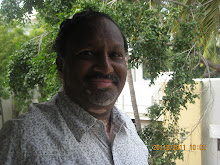09-04/10
When working in Syndicate Bank in the year 1991-93, I was posted in a branch in Kollur, in Karnataka state where I had to learn Kannada, yet another new language for me. Kollur has a predominant Hindu population around a famous temple. Soon after taking charge as Rural Development Officer, I came to know that a majority of the farmer-customers were Christian settlers from the neighbouring state of Kerala and were rubber planters. They had come to Kollur on the recommendation of the Rubber Board which had identified that part of the Western Ghats (a mountain range along the western coast of India) as a non-traditional area for rubber. Despite the tough terrain, encouraged by the Board, the settlers made it their home and planted rubber after availing long term loans from Syndicate bank’s Kollur branch.
When I joined the branch the relationship between the planter-customers and the bank’s staff was at the lowest ebb. The bank’s ire was mainly due to the fact that despite being the seventh/eighth year of the loan tenure, none of the planters had started paying back the loan. The accrued interest and principal were due from the sixth year onwards. The customers and the staff were virtually at loggerheads and were at the verge of turning it into a religious cold war.
The first decision that I took was to bring in a ‘cease fire’ with an assurance to both the sides that the problem would be solved in a month’s time. Both heeded to it, though an uneasy calm still prevailed whenever the customers visited the branch. In the meantime, I took time for conducting a reconnaissance survey of the planters’ settlements and their plantations and came to know that the real culprit was the climate! After a thorough study of the situation I came to know that the Rubber Board had in fact taken a hasty decision to declare the entire area ‘fit’ for Rubber Cultivation. Despite being on the windward side of the south-west monsoon and having received sufficient rainfall year-in and year-out, the other agro-climatic factors like elevation of the place, humidity levels and the soil status were probably undermined at the time of identifying the area. Having coming to know this as the reason for the non-attainment of the required girth of the trees for starting tapping of the rubber sap, I kept it under wraps.
In the meantime the settlers who had become rough and tough had to be calmed down. I came to know that most of the settlers owed allegiance to the Catholic faith and were members of two churches in their areas. On a Sunday morning I met the parish priests of both the churches and explained the matter in Malayalam. I told them that I have been purposely posted in that area as I knew Malayalam, the language of the settlers and because of my track record as a tough officer for recovery of irregular loans and it would be in the best interest of the settlers to change their behaviour and attitude against the bank’s staff. Both of them were at the first place, impressed by my approach and were very supportive and surprisingly they mentored their members on the same day soon after the Sunday Mass and this worked as a miracle. Soon a meeting of the planters’ representatives and the staff was arranged and the real fact of agro-climatic mis-match was disclosed. The loans were all rescheduled, after the planters came forward to clear the entire accrued interest portion, and within a few months many of the loans came out of the non-performing asset category.
The next year the branch received the best branch award. Although the management had taken notice of the situation, the frustrating part was that I did not even receive a letter of appreciation from the management. All that remains now is the pleasant thought of my effort to bring back the lost smile on the face of the poor planter.
P.Uday Shankar
Coimbatore.
